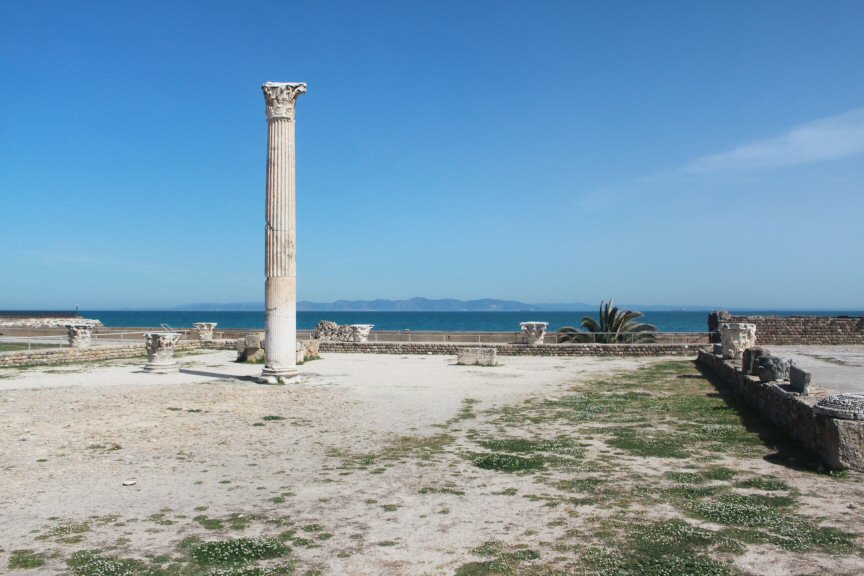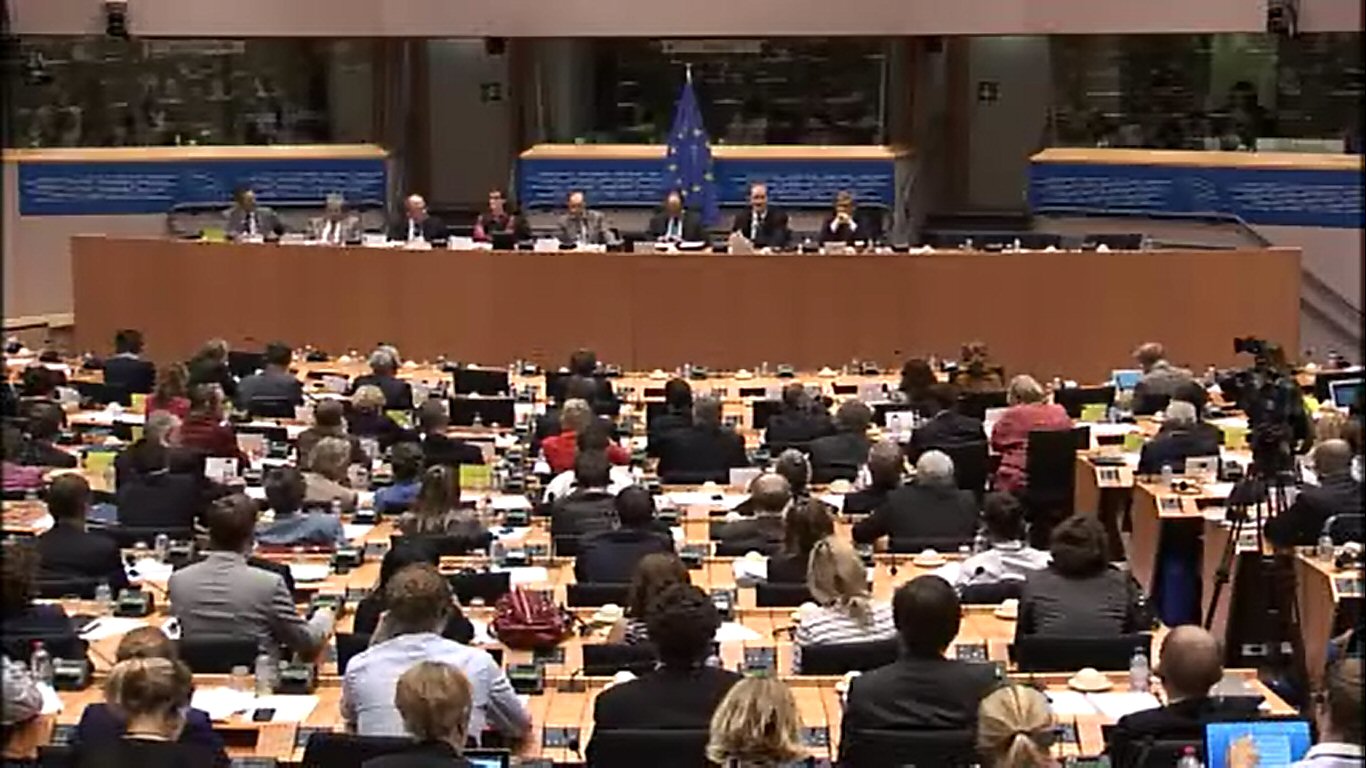The CAP 2013 reform was the first negotiated under the ordinary legislative procedure (co-decision) in which both the Parliament and the Council had equal powers. A project undertaken by the Centre for European Policy Studies in Brussels for the European Parliament’s Policy Department has sought to examine what impact and influence the Parliament had on the CAP 2013 out-turn as a result of co-decision. Did co-decision give the Parliament a greater opportunity to influence the final outcome, who were the key players in shaping the Parliament’s views and what did the Parliament use its influence to achieve?
The final study, when it is published, will throw light on these issues.… Read the rest
Prospects for the next CAP reform
The newly-elected MEPS are now finding their feet in Brussels and committee memberships have been assigned. Commission President Juncker has allocated portfolios to the Commissioners nominated by member states, and the European Parliament has scheduled its confirmation hearings beginning next Monday 29 September. The hearing for the Commissioner-designate for Agriculture and Rural Development, Phil Hogan, is scheduled for Thursday 2 October.
What will the new Commissioner and the new Parliament mean for future CAP reform? With the implementation of the Ciolos CAP reform not even begun, it might seem presumptuous to turn to thinking about the timetable and prospects for the next CAP reform.… Read the rest
Budget impasse creates uncertainty over December farm payments
All eyes have been focused on the US government shutdown from October 1 through 17 after Congress failed to enact appropriations for the fiscal year 2014, and the simultaneous threat of a US default due to the inability to get a political majority to raise the debt ceiling until Congress finally agreed at the last moment yesterday. Less attention has been paid to the warning given by Financial Programming and Budget Commissioner Lewandowski some weeks ago, and repeated by the Director-General of that Directorate at the European Parliament Budget Committee yesterday, that the EU Commission will find itself unable to pay its bills by the middle of November unless additional appropriations are made available to fund the 2013 budget.… Read the rest
"Habemus consilium rusticarum"
White smoke eventually emerged from the Brussels CAP negotiations on Tuesday evening last 24 September to indicate that the final elements of the CAP regulations for the period 2014-2020 had been agreed between the Council, Parliament and Commission. The Ciolos reform has been concluded. The outstanding elements concerned those issues related to the CAP which were left in ‘square brackets’ in the June political agreement because they had been included in the European Council’s MFF conclusions in February this year.
For the Parliament it was a matter of principle that issues which would be addressed in the CAP regulations should be negotiated through the co-decision procedure and not decided unilaterally by the Council, even the European Council.… Read the rest
The CAP budget in the MFF Part 3 – Pillar 2 rural development allocations
When the European Council agreed on the EU’s multi-annual financial framework (MFF) for 2014-2020 in February this year, the overall allocation to the CAP’s Pillar 2 was made known but not the individual allocations to member states. Apparently, in order to secure a final agreement, each member state was told its own allocation but not that of the other countries.
It was not until May, after repeated requests from the European Parliament’s rapporteur on the rural development regulation, Luis Capoulas Santos, that the Commission communicated the individual country totals to the Parliament negotiators in the trilogue process. However, until the publication of the European Parliament secretariat’s Note European Council Conclusions on the Multiannual Financial Framework 2014-2020 and the CAP these figures were not generally available.… Read the rest
The CAP budget in the MFF Part 2 – direct payment envelopes in Pillar 1
In my previous post I discussed some of the difficulties in comparing the money set aside for the CAP in the 2014-2020 Multiannual Financial Framework (MFF) and in the current 2007-2013 MFF. Among the issues highlighted were the counterfactual baseline to be used, whether to compare period-to-period or end-year to end-year figures, and the importance of adjusting the current MFF figures to ensure like-with-like comparisons with the next MFF period.
The European Parliament secretariat’s Note European Council Conclusions on the Multiannual Financial Framework 2014-2020 and the CAP also contains a detailed breakdown of Pillar 1 direct payment envelopes by member state for the two MFF periods, allowing us to see which countries are winners and losers under the decisions taken by the European Council.… Read the rest
The CAP budget in the MFF agreement
Today the European Parliament approved the political agreement on the MFF reached with the Irish Presidency, thus concluding the negotiations on the EU’s medium-term financial framework until 2020. A mandatory review will be undertaken by the Commission before the end of 2016 taking account of the economic situation at that time. The actual MFF Regulation and the accompanying inter-institutional agreement including various declarations by the parties will be voted in the Parliament in the early autumn once the Council has adopted the draft MFF regulation.
The overall MFF ceiling and the allocations by heading as agreed by the European Council in February 2013 were not changed in the final agreement.… Read the rest
A triumph for the Irish Presidency – a damp squib for CAP reform
Yesterday morning (Wednesday 27 June), in a final trilogue, the Irish Presidency reached a political agreement with the European Parliament negotiating team on remaining outstanding issues on the CAP reform dossiers. In the afternoon the deal was discussed in a relaxed COMAGRI meeting.
Although no formal vote was taken, Paolo de Castro, the COMAGRI chair, concluded that there was broader support among the Parliament’s political groups for the final outcome than there was for the vote on the negotiating mandate in March. The Presidency had secured a more flexible negotiating mandate at the June Agricultural Council meeting earlier in the week, so although there is as yet no formal reaction from agricultural ministers it seems clear this agreement will also be supported by the Council.… Read the rest
The MFF compromise texts
Euractiv.fr yesterday published the texts of the three documents which make up the compromise package to be put to the Council and Parliament following the trilogue meeting on 19-20 June. The three documents are:
-
Draft COUNCIL REGULATION laying down the multiannual financial framework for the years 2014-2020
-
Draft Inter-Institutional Agreement between the European Parliament, the Council and the Commission on budgetary discipline, cooperation in budgetary matters and on sound financial management
-
Draft declarations relevant to the above two pieces of legislation.
(Note that the texts can be read but not downloaded from the Euractiv.fr website; a downloadable copy of the draft MFF regulation is available here.)… Read the rest
Provisional MFF agreement still to be approved
The prediction in my last post on the MFF that it would be a long midnight on Tuesday 18th June proved only too true, with the Presidency, Parliament and Commission negotiators finally reaching agreement only after more than 24 hours of talks around 8 pm last night on a compromise MFF text to forward to the Council and Parliament. The compromise agreement represents a major achievement for the Irish Presidency, but must yet be signed off by the Council and Parliament. We must now see whether the momentum will carry over to the CAP negotiations at the beginning of next week.… Read the rest





